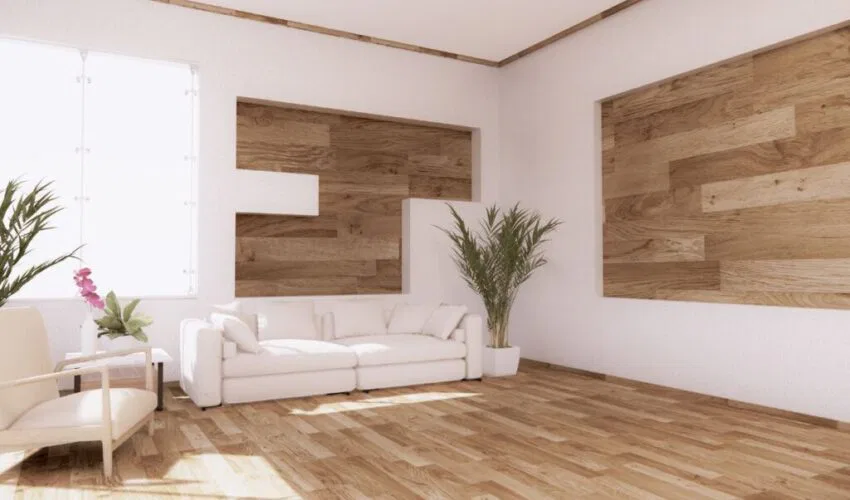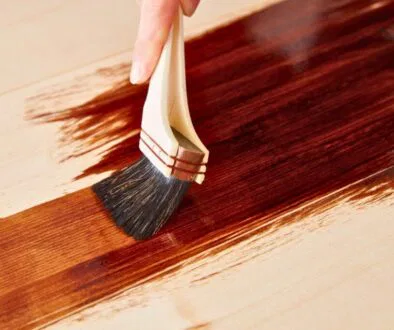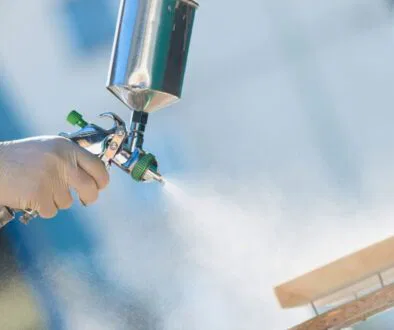The Best Wood Stabilizers That Won’t Break the Bank

Published August 18, 2023
Changes in temperature and humidity in the environment can cause the wood to expand or contract. When this happens, moisture and water can quickly get inside or bleed out of the wood. As a result, the wood may bulge, wrinkle, or warp.
This can be a problem if you’re working on a project where tight tolerance is of the essence—case in point: wooden floors. The wood can buckle when moisture seeps through it, leaving an uneven floor. Of course, nobody wants that. This is where wood stabilizers come into the picture.
When you talk of wood stabilization, it means reinforcing the wood against inherent defects or weaknesses. This is usually done by filling the cracks in the wood’s interior to prevent moisture from seeping in. This is why a wood stabilizer is also sometimes called a wood sealer.
Most wood stabilizers also tend to harden the wood’s interior. This makes it less susceptible to expansion or contraction. So no matter the weather, your wood retains its shape and size and lasts longer.
Though some wood stabilizers are pricey, some cheap ones still do the job. Here are the best wood stabilizers that won’t break the bank.
1. Resin
Resin is one of the most popular and economical wood stabilizers. The resin stabilization process involves drying the wood and putting it in vacuum chambers to remove all air pockets. This drying process is essential if you’re working with green wood (newly cut wood). Acrylic resin is then infused into the wood. It occupies all the nooks and crannies that water can get into. The result is a much more stable wood with a high tolerance to humidity.
A stabilizing resin can cost anywhere from $60 to $150 per gallon, depending on the type and uses. If you’ve never worked with resin before, you can start with epoxy resin since they’re easier to work with. But if you’re looking to save money, polyester resin tends to be much cheaper.
2. Boiled Linseed Oil
Made from pressed flax flower seeds, linseed oil has been traditionally used as a natural wood preservative. Note that we refer to “boiled” linseed oil as the pure version is not fit for a wood finish.
This oil is your best bet if you want your wood to have that perpetual “wet” look. It penetrates the grain of the wood and protects it from moisture. Applying and re-applying’s also very easy when the initial coat fades off. Plus, you won’t have to worry about making a mistake during application as it can easily be wiped down.
But a linseed oil finish may require frequent repair, especially in frequently abraded surfaces. So if you’re looking for long-lasting wood protection, choose from others on this list.
US linseed oil’s approximate wholesale price range is between US$ 5.6 and US$ 13.3 per kilogram or between US$ 2.54 and US$ 6.03 per pound.
To make boiled linseed oil, start with raw linseed oil. Transfer the oil to a heat-resistant container and heat it on a low setting, avoiding overheating or fire hazards. Simmer the oil for around 20 minutes, monitoring its color change as it darkens and develops a golden hue. Once the desired color is achieved, remove the container from heat and allow it to cool.
3. Pine Tar
Since the Viking times, pine tar has been used to protect wood against moisture and sunlight. It also prevents insects like termites and ants from getting into the wood. Plus, it needs very little maintenance and is easy to apply. Even an inexperienced woodworker can apply pine tar to wood without much difficulty.
The one downside to pine tars is that the resulting color can be unpredictable. Depending on the pine used, it can darken or lighten the wood. So if you’re looking for a specific finish, this isn’t your guy.
Pine Tar can cost up to $295 per 5-gallon. The price estimate for pine tar in the US can vary depending on the product and quantity.
4. Tung Oil
Also known as China wood oil, tung oil is made by pressing the seed from the nut of the tung tree. When exposed to air, tung oil hardens, giving your wood a wet varnished look. Aside from being waterproof, tung oil is also resistant to:
- alcohol
- acetone
- fruit acids
- vegetable acids
It’s also very easy to apply. You won’t even need a brush. An old rug will do. Just wipe it on the surface of the wood layer by layer until you achieve your desired finish.
Tung Oil ranges from around $25 to $30 per quart for pure Tung oil, while impure versions with additives may be available at lower prices. Bulk pricing for 55-gallon drums can be around $50 per gallon.
5. Osmo Top Oil
A professional-grade oil, Osmo Top Oil provides a durable, lasting finish on wood. It’s also resistant to common liquids such as water, beer, coffee, and even fizzy drinks. Since it’s food-safe, it’s best suited for surfaces where food is prepared, like a chopping board.
This oil is easy to use and can be reapplied without sanding the topcoat.
Osmo Top Oil can cost up to $87. The price estimate can vary depending on the product and quantity.

6. Australian Timber Oil
Cabot’s Australian timber oil combines tung and linseed, creating a matte finish. It seeps deep into the woods, protecting it from mold and mildew. This process also highlights the natural wood patina. It’s best suited for dense woods like tallowwood, cambara, and Merbau.
This formulation is solvent-based, so make sure you’re applying it in an open-air space. Also, make sure to bring a lot of patience as the finish takes approximately 2 days to completely dry.
(Related: What NOT To Do When Bleaching Wood Floors)
Australian Timber Oil can cost up to $125 per gallon. The price estimate can vary depending on the product and quantity.
7. Shellac
Shellac is a natural wood stabilizer made from the lac insect’s secretions. It has been used for centuries as a versatile wood finish and sealer. Shellac provides excellent protection against moisture, chemicals, and heat. It also enhances the natural beauty of the wood by adding depth and sheen to the surface.
The price of shellac can vary depending on the brand and quantity, ranging from around $10 to $30 per quart.
8. Danish Oil
Danish oil is a popular choice for wood stabilization and finishing. It is a blend of oils, typically including linseed oil, varnish, and mineral spirits. Danish oil penetrates deeply into the wood, enhancing its natural color and grain while protecting against moisture. It is relatively easy to apply and dries to a low-sheen finish.
Danish oil can range from $10 to $30 per quart, depending on the brand and variant.
9. Water-Based Polyurethane
Water-based polyurethane is a modern wood stabilizer and finish that offers durability and protection. It is an alternative to oil-based polyurethane, with the advantage of being low in VOCs (volatile organic compounds) and faster drying time. Water-based polyurethane provides a clear, protective coating that resists scratches, stains, and moisture.
Prices for water-based polyurethane can range from $10 to $40 per quart, depending on the brand and quality.
Hire The Timber Experts For Your Next Project
Vintage & Specialty Wood should be your source of the highest quality timbers from around the world. When it comes to fabricating and installing reclaimed wood or specialty wood products in your home, we don’t cut corners. We offer many reclaimed wood and specialty wood products such as Douglas Fir, white oak, and much more. We also offer timber framing and wood flooring services as well. Contact our team today to speak to a timber expert about what Vintage & Specialty Wood can do for you.

This Blog Is Fact Checked
This content has undergone meticulous fact-checking by our team of internal experts. Gain a deeper understanding of the high editorial standards we uphold on our website here.

About The Author
Experience, exploration, and knowledge are the hallmarks of writer Rei Bayucca. Her dedication to crafting articles that both inspire and educate will leave you thinking long after you’ve finished reading.




